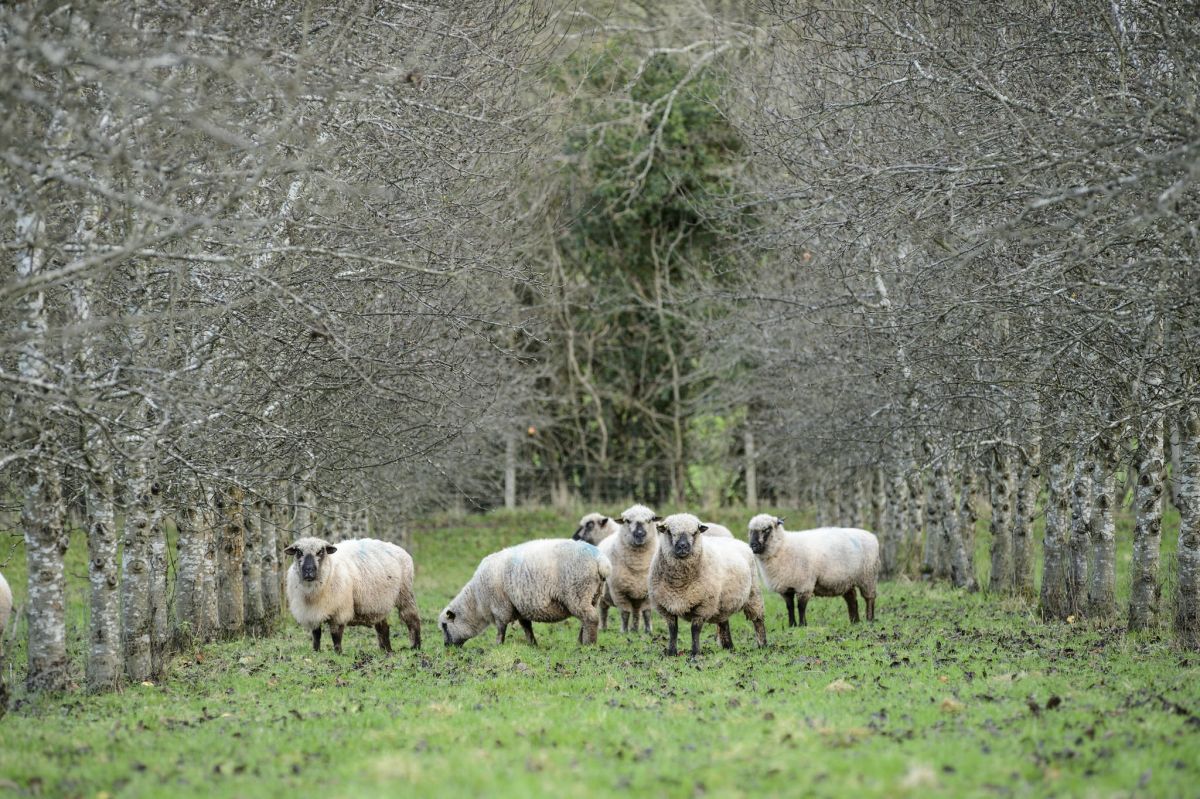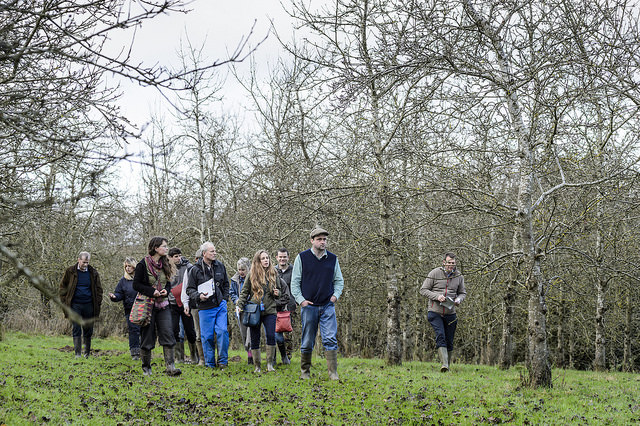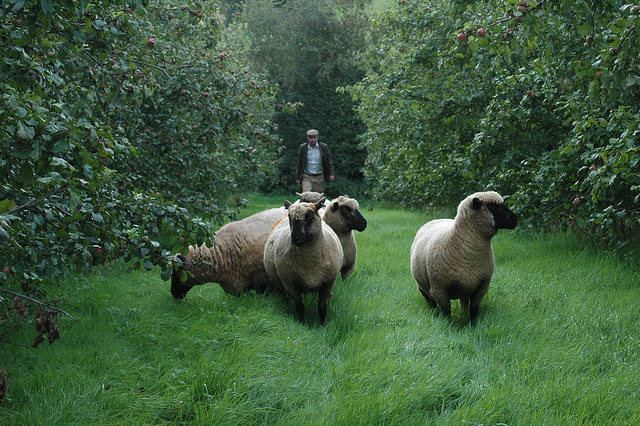
A group of Innovative Farmers in Herefordshire have found that Shropshire sheep did not damage apple trees when grazed in an orchard.
Sheep would normally devastate the apple trees but this breed has been found instead to bring many benefits.
Through the field lab at Broome Farm, Peterstow in Hereford, a group of farmers found that sheep can help with tree management, weed control and soil health.

Mike Johnson of Broome Farm, who grows apples for cider production, said: "Through the field lab I wanted to find out what sheep can do to keep lower branches pruned without causing major damage to the trees.
"We struggle to prune the suckers growing at the base of trees (and it’s expensive!), but it seems that the sheep nibble these shoots down, meaning our workload is reduced and we save money!"
Innovative Farmers is a national network run by farmers for farmers, to investigate solutions to every day practical farming problems.
Through the network, orchard owner Mike Johnson linked up with other farmers in the Hereford area.

The Soil Association, a partner in Innovative Farmers, helped find experts and advisors to lead the group, including researcher Emily Durrant from the Bulmer Foundation and Liz Bowles from the Soil Association, enabling Mike and the other local farmers conduct a more structured observation as part of the field lab in his orchard.
Liz Bowles, head of farming at the Soil Association is co-ordinating the field lab. She said: "Sheep are excellent natural lawnmowers, keeping grass and weeds down and providing fertiliser at the same time.
"Using sheep to reduce competition from grass instead of spraying or mowing helps orchard owners reduce the work required in the orchard, improve the soil health and reduce soil compaction."
As well as showing that the Shropshire sheep did not harm the trees, the group were able to monitor other benefits of grazing sheep in the orchard.
The importance of minimising soil compaction due to reduced passing of machinery in the orchard and building soil fertility by grazing sheep in the area was noted.
Beneficial soil organisms, such as mycorrhiza which are important to plant health and growth, should also be present where soil is not disturbed for significant periods – such as in the apple orchard.
The field lab will continue and these effects will be further investigated. The group have applied for additional funding from the European Innovation Partnership (EIP) to explore the long term effects of grazing in orchards.
Innovative Farmers is a not-for-profit network giving farmers research support and funding on their own terms.
Many of the best ideas in farming come from farmers. But most research happens off-farm. Innovative Farmers changes that.
It helps farmers find lasting solutions to practical problems, from managing weeds and pests with fewer chemicals to testing more sustainable animal feeds through on-farm field labs.
Together farmers are finding new ways to grow better food, cut waste and pollution, and protect their farm from volatility.
